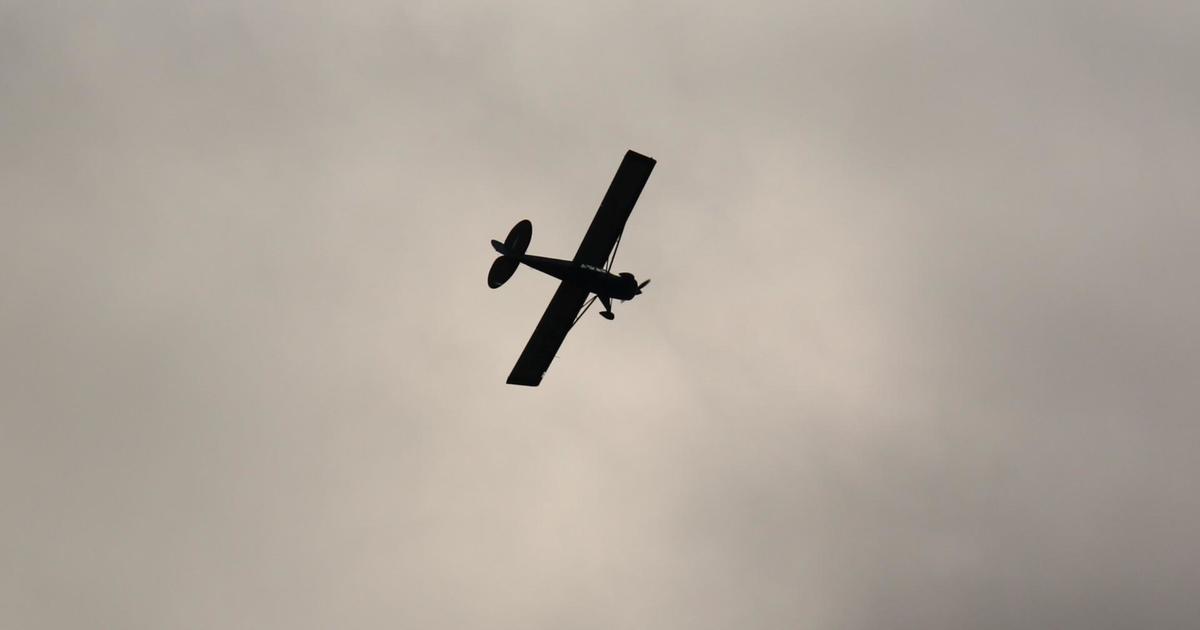For Domestic Violence Victims, Promise In GPS
MINNEAPOLIS (AP) — A pilot program that uses GPS technology to monitor when alleged domestic violence offenders get too close to their victims has shown promise in Ramsey County, say authorities who want to continue offering it as an option to help keep victims safe.
Bills in the House and Senate would let the county extend the program, which uses GPS to alert a victim when her alleged abuser is nearby.
The bills would also set standards for other jurisdictions to set up their own GPS monitoring.
"Ultimately, I think it really helps somebody who is very fearful for their safety. It gives them another layer (of protection)," said Ramsey County Attorney John Choi, who is among those scheduled to testify for the legislation Wednesday before the House Public Safety Committee.
Ramsey County launched the pilot on Nov. 1, 2012, with the goal of keeping victims safe and ensuring defendants complied with no-contact orders. Officials had hoped to evaluate it after a year, but they say they need more data for solid conclusions.
Here's how the program works: Project Remand, a nonprofit that provides pretrial services for Ramsey County, screens every domestic violence defendant at the first court appearance to see if he or she is eligible for release with monitoring.
If both the defendant and the victim volunteer to participate, each gets a GPS device. The defendant wears an ankle bracelet and the victim carries a "stalker alert" device. When a defendant gets too close to his victim and doesn't leave the area, a monitoring center notifies authorities.
A warning sounds on both devices. The victim is told to call 911 and gets a phone call and text or email message. The defendant is told to go home.
In the program's first year, 19 of 170 eligible defendants participated, and 12 finished with successful results, according to a report prepared by the Ramsey County Attorney's Office. The report says the data set is small, but looks promising.
"Defendants who participated in the GPS pilot demonstrated greater overall compliance with court orders and significantly lower rates of recidivism than the comparison group," the report said.
The experiences are similar to those of other communities.
A study published in June 2012 by researchers from the University of Illinois and Florida State University evaluated 18 different programs and found that when GPS monitoring is used during pretrial release, offenders almost never try to contact a victim.
"At the end of the day, it's just a piece of paper," Choi said of a court's no-contact orders. "If you've got a bracelet around your ankle, that's a reminder every day that you better stay away."
The program has had some challenges. Some victims complained about the size of the device, which is larger than a cellphone, said Mary Pat Maher, executive director of Project Remand. Choi said the program also didn't get a lot of referrals at first, and some victims didn't have cellphones. In those cases, the county would provide them, he said.
The county's report includes data from Nov. 1, 2012 to Oct. 31, 2013. Since then, more people have participated. As of Friday, 27 domestic violence defendants have been in the program since it started, Maher said. Of those, four remain on GPS and 16 completed the GPS release successfully.
Seven were unsuccessful for several reasons, including not following program rules or violating a no-contact order. One defendant cut off the bracelet, Maher said.
In that case, both victim and monitoring center got alerts. The dispatch center immediately sent police to the victim's house and the defendant's house. The defendant had fled, but was arrested later, she said.
Maher said although only a handful of victims were interviewed about the program, overall, "victims reported that they felt safe ... knowing the defendant was wearing the GPS device."
Choi said the program also helped at least one defendant. In that case, a man who was falsely accused of getting too close and violating a no-contact order was exonerated after GPS data showed he was nowhere near the victim.
Rep. Clark Johnson, DFL-North Mankato, the bill's author in the House, said he was bothered by several stories on the nightly news about women in the Twin Cities area who were killed — allegedly at the hands of their husbands, boyfriends or ex-partners. Then last summer, two women in his southern Minnesota district were also killed, apparent victims of domestic violence.
A constituent got Johnson thinking about GPS monitoring, and he eventually connected with Choi and thought the pilot should be extended. He also wants it in Blue Earth County.
"We can't let this continue," Johnson said of abuse. "It's not only the murders, it's domestic violence ... This is a way to address it, I think, and protect the victim, and possibly provide some type of deterrent for some men."
Erica Schumacher, director of strategic initiatives for Choi's office, said the group worked with the Minnesota Coalition for Battered Women to make sure the bill would establish standards that could be used statewide. Among them, ensuring the program is voluntary, that the victim is fully informed, and that there is active monitoring, Schumacher said.
The program will end in June if the Legislature doesn't act.
(© Copyright 2014 The Associated Press. All Rights Reserved. This material may not be published, broadcast, rewritten or redistributed.)



